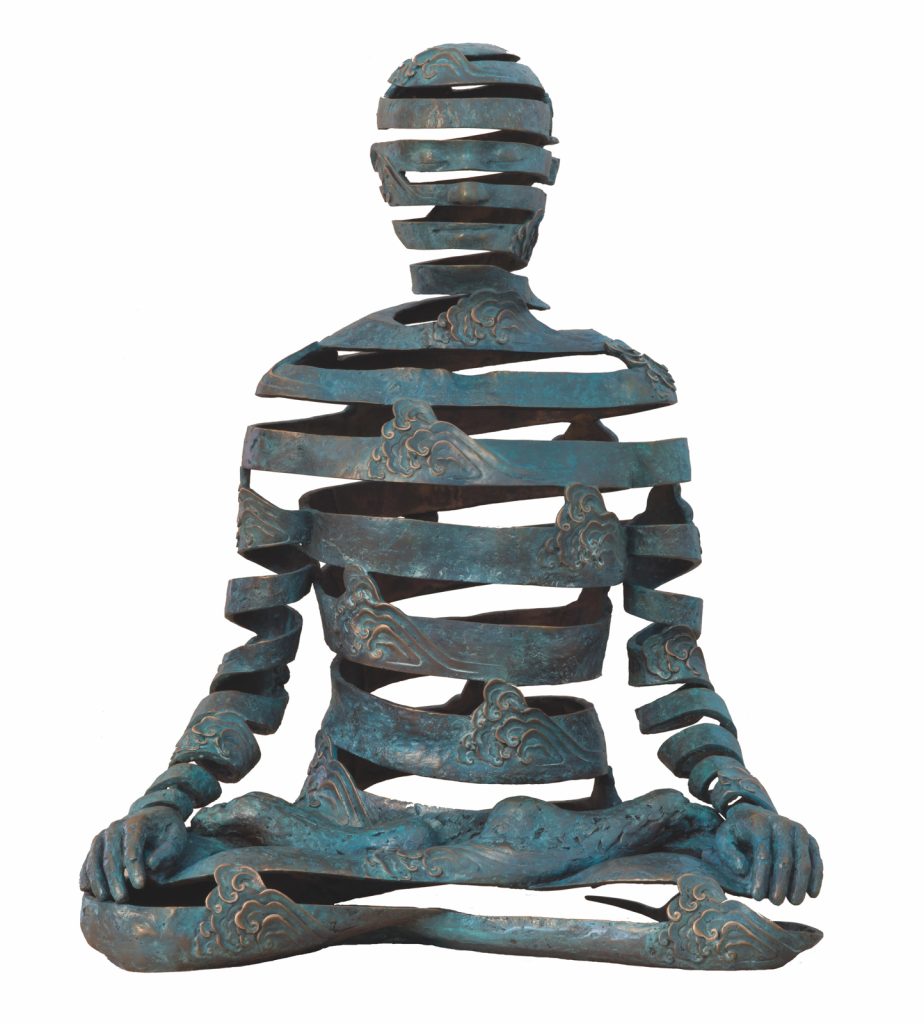What Does Atman Mean?
In Sanskrit the word ātman is used by Hindus for the soul, that most essential part of the self that is deeply embedded in the body but is immaterial and indestructible and reincarnates when one dies. Buddhists reject this idea as a comforting but mistaken viewpoint that does not stand up to deep empirical investigation and posit instead a foundational concept of anātman (“not-ātman” or “non-ātman”), which in Pali is spelled anattā.
The Buddhist critique of ātman is subtle and goes beyond simply denying that a self exists. At the heart of the matter is how to regard the very word “exists.” According to Buddhism, phenomenological events do occur, but ontological entities do not underlie them. The functions associated with a self, such as thoughts and emotions, “exist” in the sense that they happen, but it is a projection of our language and imagination to say further that a solid entity, a spiritual essence, an unchanging substance or a transcendent energy therefore “exists” as something beyond these occurrences.
The Five Aggregates in Buddhism
The processes known as the five aggregates really do take place: Bodies unfold as transient material configurations in a changing material environment; feelings of pleasure and pain arise and pass away according to circumstances; the mind perceptually interprets the information flowing in upon the senses to create stories; emotional responses take place every moment and result in volitional actions; and awareness of all this unfolds in a stream of conscious moments, one following another. The Buddhist insight is simply that there is nothing that remains constant amid all this change. No agent is in control of what happens, and there is no one to whom it all belongs. Even rebirth is a flowing on of the stream from one life to another: the one who is born is not the same as the one who dies.
Non-Self or Not-Self in Buddhism
Early Buddhists emphasized that there is no person within the five aggregate functions outlined above, and therefore the interdependent psychological factors co-arising to construct lived experience are best described by the word “non-self” or “not-self.” Later Buddhists extended this thought to declare that there are no substantial realities underlying the interdependent metaphysical phenomena making up the entire cosmos—it is all best described as empty of self.
The concept need not be as mysterious as it is often taken to be. Just see the difference in your own experience, next time it rains on your picnic or someone cuts you off in traffic, if you don’t take it personally. This is just what is happening; no self, no problem.
Thank you for subscribing to Tricycle! As a nonprofit, we depend on readers like you to keep Buddhist teachings and practices widely available.
